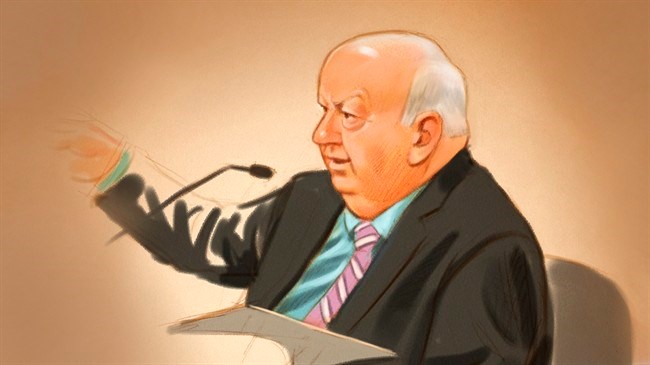One-time Liberal candidate Briony Penn and a federal NDP Saanich-Gulf Islands official have joined Green Party Leader Elizabeth May in calling for an investigation of robocalls in light of Sen. Mike Duffy’s testimony that local voters were misdirected at the behest of Conservative operatives.
Duffy testified at his fraud trial in Ottawa on Dec. 10 that incumbent Conservative Gary Lunn “had a close call during the previous election and it was only through the divine intervention of Doug Finley’s black-ops group at Conservative headquarters that he managed to get himself re-elected.”
Duffy said under oath: “Basically what happened was that they used robocalls to misdirect NDP voters, to split the vote and allow Gary Lunn to win,” Duffy said.
May, who defeated Lunn for the seat in 2011, said she does not think Lunn was involved in the subterfuge but that “Duffy’s reference to a Conservative Party ‘black-ops’ group requires further investigation.”
“I am keeping an open mind as to the credibility of Duffy’s testimony, as it was not tested on cross-examination — at least not yet,” May told the Times Colonist in an email from Paris, where she had been attending the climate-change talks.
Finley was the Conservatives’ national campaign manager in the 2006 and 2008 elections, was appointed to the Senate in 2009 and died in 2013.
May said she plans to take steps toward an investigation when she returns to Canada. She has said the RCMP and Elections Canada should get involved.
Bill Graham, the NDP riding president for the seat, said Thursday that he has already written to Elections Canada and to Ottawa-based advocacy group Democracy Watch seeking another look at the issue.
Lunn won the riding in 2008 by a margin of 2,625 votes over Penn. At issue were 3,667 votes cast for NDP candidate Julian West, who had withdrawn from the race but whose name remained on the ballot.
Had most of those voters opted for Penn, she would have defeated Lunn, although Graham pointed out that some of those votes were cast in advance polls. It was Graham’s fax machine number that turned up as the source of phone calls to NDP supporters.
Graham said whoever was responsible for the electoral fraud should be prosecuted.
Penn said Elections Canada did not investigate voter-suppression techniques after the 2008 election, and it’s time to catch up.
“I’m delighted it was Mr. Duffy who paradoxically provided the additional evidence for the robocalls,” she said in an email to the Times Colonist, adding it’s “a little ironic but heartwarming that we agree on this matter.”
Lunn has said that another investigation would be “ridiculous,” and that the NDP itself could have been behind the calls to ensure the $2 per vote that Ottawa reimbursed parties at the time.
Graham called Lunn’s claim “absurd,” adding the NDP had covered election expenses. The Conservatives were the only party with something to gain from the calls to continue to vote for West, Graham added.
“Someone on behalf of the Conservatives committed election fraud in order to win the seat for Gary Lunn,” he wrote to Democracy Watch, citing “Finley’s black-ops group.”
Lunn knew nothing about it, Duffy said, but was phoned after the election and told: “We got you in.”
Lunn told the Times Colonist he never received such a call.
Graham said the first Elections Canada investigation into the issue is still a sore point.
“Elections Canada and the RCMP were no help whatsoever in running down who was really responsible for that, although it was pretty clear to us that it was the Conservative Party or some operatives of the Conservative Party,” he said.
The office of the Commissioner of Canada Elections has said it will not confirm or deny whether another investigation will proceed.
In a 2012 blog posting, Penn said an Elections Canada legal counsel told her in March 2009: “Our investigator found no one who had actually been influenced in their vote because of the purported telephone call. Nor was he able to identify the source of the person or persons who actually made the calls. As a result of the foregoing, our investigation has now been concluded.”
But Graham said the attempt was a crime, whether or not it proved successful.
Penn received a further response from Elections Canada in March 2010: “This office examined thoroughly the complaints received and advised the complainants that there is no evidence that the Canada Elections Act has been contravened.”
In March 2009, Democracy Watch advocate Duff Connacher told the Times Colonist that Elections Canada was remiss in saying it could not determine who was responsible for the fraudulent phone calls.
“It is impossible to book lines without a contract, and they can force Telus — or whoever — to tell them because it is a criminal investigation,” Connacher said.



